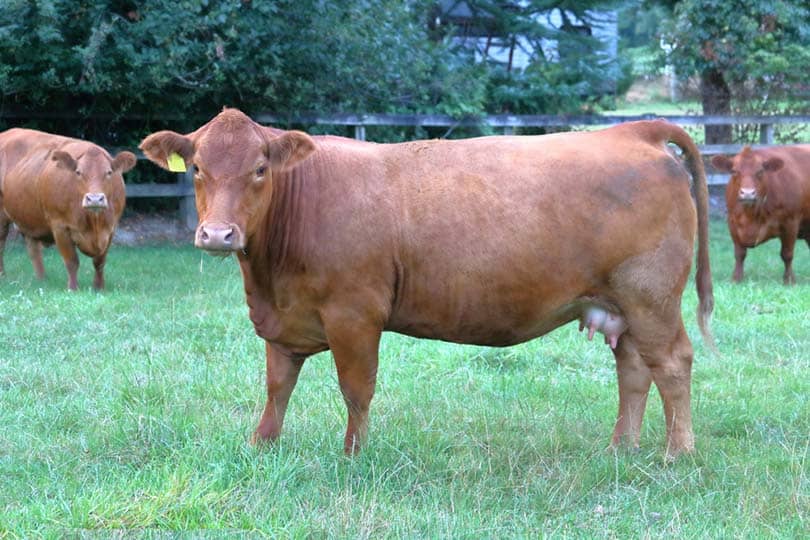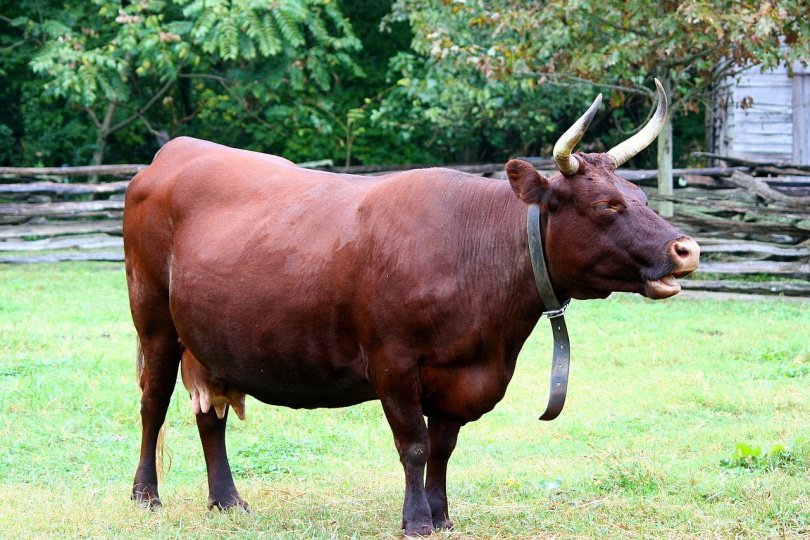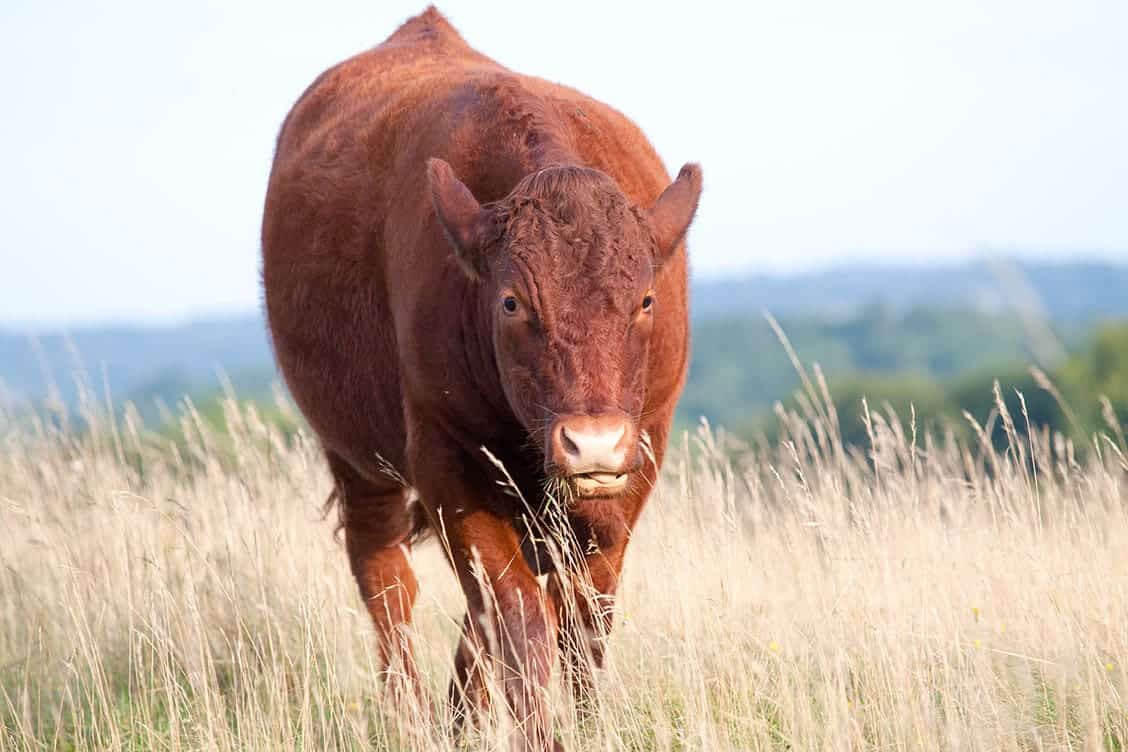The Devon cattle breed, also commonly known as the North Devon or Red Devon, is one of the oldest cattle breeds in existence. In fact, some references to the breed have been made as far back as 55 BC! The Devon was originally classified as a dual-purpose breed and is known for its excellent milk production with a high percentage of buttermilk, although it is used primarily for beef production nowadays.
These cattle mature early, are docile and easy to handle and care for, and are rapid weight gainers even in grass-fed applications, making them ideal for small-scale farming and commercial farming alike. If you’d like to know more about this ancient cattle breed, read on below!

Quick Facts About The Devon Cattle Breed
| Breed Name: | Devon, North Devon |
| Place of Origin: | Devon, England |
| Uses: | Dairy and meat production |
| Bull (Male) Size: | 1,400–2,200 pounds |
| Cow (Female) Size: | 1,000–1,300 pounds |
| Color: | Red |
| Lifespan: | 15-25 years |
| Climate Tolerance: | Extremely heat tolerant |
| Care Level: | Moderate |
| Production: | 12,000 pounds of milk annually |
Devon Cattle Breed Origins
Devon cattle, as the name suggests, originated in the county of Devon in Southwestern England. There is some evidence of early Devon stock arriving from Northern Africa or the Middle East at some point, which would explain the Devon’s adaptation to hot climates—a trait that seems out of place for a breed developed in the cold, damp climate of England.
Devon cattle first reached the United States in 1623 and were likely one of the first purebred cattle breeds to reach the US. The Devon was originally a horned breed, but American breeders developed a polled variety in the early 1900s, and the breed slowly became a popular beef breed rather than the dual-purpose breed it was initially known for.

Devon Cattle Breed Characteristics
Devon cattle are known for their docile nature and are thus very easy to handle and care for. They are also highly adaptable cattle, able to withstand both cold and hot climates relatively easily, and are known for their excellent adaptability to grass-based environments. Devon cattle gain weight rapidly and mature early, have a natural resistance to disease, and produce excellent beef with rich flavor and tender texture, plus milk that is high in butterfat.
Uses
Devons were primarily a dual-purpose breed for much of their history, known for their excellent milk production and high butterfat content in their milk. However, the reduction in the need for dual-purpose breeds over the last several decades has resulted in the Devon being used primarily for beef production. They have long been revered for their high fertility, calving ease, docile nature, and adaptability, and since they have one of the thickest hides in the world, are highly resistant to parasites.

Appearance & Varieties
Devon cattle are sometimes referred to as the North Devon to distinguish them from their recently developed close cousins the South Devon, which are more yellowish-brown in color. Devon cattle are red in color, although vary from a rich, deep red to a lighter, more chestnut color. They have medium thickness coats which can sometimes appear long and curly in the winter but are short and sleek during the summer. They are fairly well-muscled, and bulls can reach up to 2,200 pounds at maturity. Originally, Devons had horns, but the development of a polled variety has resulted in almost 50% of registered Devons being polled.
Distribution & Habitat
Since Devon cattle are so adept at foraging and can utilize various grasses so efficiently, they have become popular worldwide. They can be found throughout Europe and the United States, as well as South America, Australia, and New Zealand.

Are Devon Cattle Good for Small-Scale Farming?
Devon cattle are docile and excellent foragers, and so make ideal animals for small-scale farmers. Indeed, these cattle were dual-purpose animals for much of their history, and so are ideal for small-scale farmers looking to utilize them for both milk and beef production. They are very easy to work with, making them great for cross-breeding, and their gentle, docile nature makes them ideal for farmers without access to advanced handling facilities.
Devon cattle have excellent calving abilities and are hardy and long-lived animals, ideal for small-scale farmers.
Featured Image Credit: Chrispo, Shutterstock
